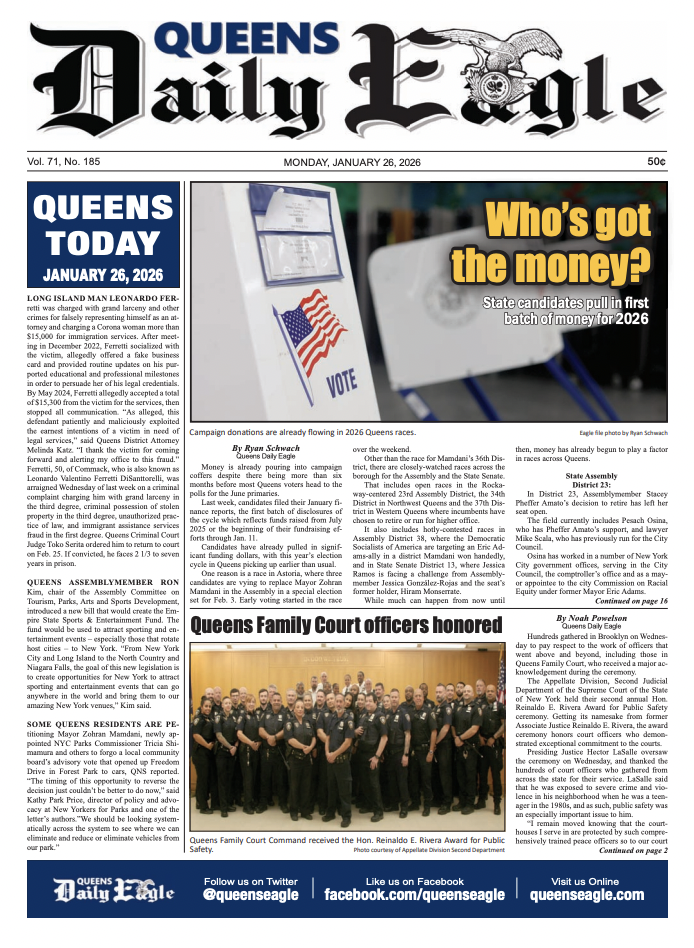Meng bill would nix ‘public charge’ status as reason for deportation
/A bill introduced by Grace Meng (right) would exclude the public charge as justification for deporting immigrants. AP Photo/Jose Luis Magana.
By Jonathan Sperling
Queens Daily Eagle
Legislation introduced by U.S. Rep. Grace Meng last week would remove the public charge as reasoning for the deportation of immigrants across the country, effectively combating the Trump Administration's crackdown on immigrant families who receive public assistance benefits.
The No Public Charge Deportation Act is a direct answer to President Donald Trump’s new public charge rule, which makes immigrants ineligible for permanent legal status if they are so called “public charges” — government jargon for people who receive public benefits, such as Medicaid and food stamps.
A staggering one in seven immigrant adults reported last year that they or a family member did not participate in a non-cash benefit program because they were scared of its impact on their future green card status, according to Meng.
“President Trump’s draconian immigration policies have caused vast harm to immigrants and their families,” said Meng said in a statement. “From the Muslim travel ban to separating families at the U.S.-Mexico border to the public charge rule, this administration will do anything to block hard-working immigrants from achieving the American Dream.”
Meng referred to the public charge rule as a wealth test that causes even immigrants with permanent legal status to forego public benefits for fear of a relative losing a chance at status.
“These policies are discriminatory, and the administration’s new public charge rule would force many families to choose between putting food on the table or keeping their legal status,” she continued.
Meng’s bill is also included in the New Deal for New Americans Act, an October 2019 bill that would establish a National Office of New Americans and reduce obstacles to U.S. citizenship.




